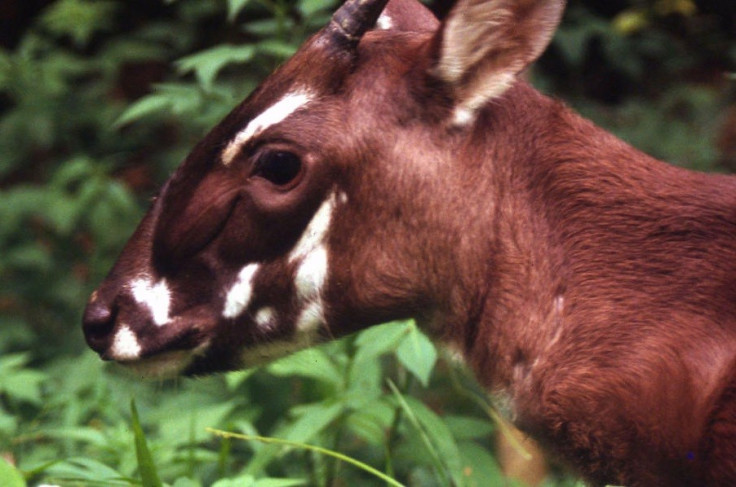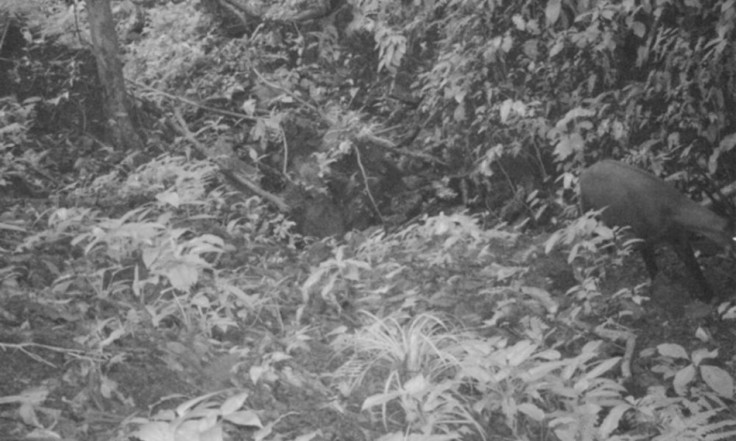Asian Unicorn: World's Rarest Mammal Saola Filmed in Vietnam for First Time in 15 Years [VIDEO]

The world's rarest mammal, the saola, has been photographed in Vietnam for the first time in 15 years.
Also known as the Asian unicorn, the horned bovine is found only in Vietnam and Laos, and is considered one of the rarest and most threatened mammals on the planet.
The WWF and the Vietnamese government's Forest Protection Department set up a camera trap to catch the saola on film.
Images captured were the first sightings of a saola in the wild in the 21<sup>st century. They show conservation efforts in place in Vietnam to protect the saola's habitat are working.
Barney Long, director of the species conservation programme at the WWF, said: "This is a monumental find and comes at a critical moment in time for saola conservation.
"It's a huge reward for decades of tireless work by the provincial government that established the saola reserve, community snare removal teams and WWF biologists. Now it's time to double our efforts to recover this iconic species."

The black and white images show the saola passing the camera among foliage in the forest near Vietnam's border with Laos, an area where WWF helped implement a law enforcement model where local people are recruited as forest guards, who remove snares and stop illegal hunting.
Over the last two years, guards have removed over 30,000 snares from the saola habitat.
Saola have only been documented in the wild by scientists on four occasions since the species was discovered in 1992. The mammal resembles an antelope but is distinguished by its long horns and facial markings. It is a cousin of the cow, goat and antelope.
William Robichaud, coordinator of the Saola Working Group of the IUCN Species Survival Commission, said: ""These are the most important wild animal photographs taken in Asia, and perhaps the world, in at least the past decade.
"They are also inspiring evidence of the effectiveness of the forest guards model to keep saola from sliding into the abyss of extinction. But more support is needed, so that WWF and other partners can scale up the initiative to additional parts of the saola's range."
© Copyright IBTimes 2024. All rights reserved.























